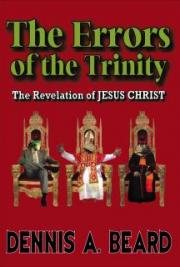XI. A view from
the other side
Yes,
I have been studying Korean albeit haphazardly, but with Korean language
education being less in demand and the teaching methods conservative, I have
not practiced much. I get grammar book after grammar book and plug along,
picking out the alien words and the things that bind them like a bear lumbers
through shrubbery picking berries. I see tutors on and off. I wade through
lessons like said bear stumbling through icy waters clawing at the fish
swimming between its legs.
I try
to learn Korean but it is very slow even though I live in a Korean speaking
environment. Of course, I am here to speak and teach English and everyone wants
to make the most of that.
I
attend a class here and there until so utterly frustrated and impatient with
the unrequited desire to actually say something in Korean and the average
teacher’s usual desire to lecture about the language as if it were a subject
like history, a thing of the past existing only in books. Such may have been the
case for Latin, but ENGLISH? I feel driven me away time and time again in a fit
of fury and disappointment, only to try yet another beginner intermediate class
reviewing beginner intermediate material, and then again.
I try
one book for awhile until I cannot continue, then take a break and find another
book covering the same material and go through it again. I listen to the
accompanying tapes and CDs again and again, or the internet programs, repeating
on those rare occasions when there is actually a gap for the listener to mimic
what’s been voiced in Korean, the Korean utterances usually being at a
fantastically sped-up pace. It is done that way, I imagine, so as to give
students authentic language experience yet it is so rapidly fired off that
rarely could any real person could ever attain such a galloping elocution in
real life.
Speaking
of real life, I think that Koreans could have a little more tolerance for
hearing a foreign newcomer try out their language. Hard for the North American
if not all speakers whose first language is English to imagine a person feeling
that their language is so sacred it is not to be tainted by alien lips.
At
least I have studied European languages whereas one cannot say that of so many
English-teaching expats whose mother tongues are English and who have made this
a long term or even permanent home that one ordinarily finds in this country.
Funny how English on demand is pretty much expected by certain folk while the
demand to learn others is significantly retarded. There being some rare
exceptions at very studious or gifted Korean learners among the “native English
speakers” from “the West,” I think foreigners generally could try to learn
Korean more and learn it better. Let’s say, then, that there are attitude
problems on both side of that (rather high) fence.
There
are theoretical and pedagogical explanations for the adult’s sluggish learning.
Adults must study hard for several hours every week to learn rules and memorize
vocabulary and phrases and, in order to learn new habits, they must have
extensive repetition.
How
much do Korean language teachers even know that adults learn differently from
children? How many know about that and other principles of language learning
and teaching? We, the learners, particularly those of us trained in teaching
English, suppose the average Korean teacher knows little of it.
Not
only is English education a mandatory facet of neo-liberal globalization
conquest, it is a buzzing industry itself. All manner of gold-seekers are eager
to make their fortune in it, including the inept and unprepared. Teaching
English as a foreign language is probably the most advanced and most active
pseudo-sciences around! It is probably the least environmentally friendly, for
all the stuff it produces! In addition to all the English language education
textbooks and the academic literature about the theory and pedagogy of teaching
and learning English as a second or foreign language, textbooks for students of
the English language abound filling whole library sections, online catalogues
and bookstores in most large cities of the world. Entire study programs and
academic departments, even whole institutes are devoted to it.
Yet,
where are their Korean language counterparts for teaching and learning Korean?
They are few and far between and scattered about. In fact, it can be hard to
find them in Korea.
If
there is a TESOL for Teaching English to Speakers of other Languages, where is
the TK-SOL for teaching Korean to speakers of other languages? Does anybody
care much about the best theories and methods for teaching Korean to non-Korean
speakers?
Language
teaching as a whole in Korea is stuck in a time warp where it is always the
1950s. It seems it will never mature beyond the grammar-translation approach.
Learners
and candidates for tutelage in Korean wonder, no doubt, whether Korea wants
them to learn. Not enough demand by which to create an industry, no doubt.
Probably,
the apparent lack of tolerance for hearing the “Westerner” struggle with
uttering Korean phrases is because they do not have the habit of hearing their
native language groan, whine, fart and shriek under exertions like diesel bus
darting, turning and breaking in rush hour in Seoul. Just as it is for someone
living constantly in that sort of commotion, is it because they just cannot
perceive their own noise?
I
liken the experience of trying to learn and use Korean to riding a horse
sometimes. The horse being the language, it has too much power and will for the
stranger-novice to manage with little training, knowledge and skill. But you
know what they say: “Practice, practice, practice!”
“Do
not take the horse away from us, let us learn to ride it,” I say. “We just need
more time in the paddock going round and round until we get it right. We will
make mistakes just like you.”
They
show us a book, lecture at us, and ask us to read aloud here and there, then we
are expected to make show-jumps. Let us learn to trot comfortably and
confidently first, for goodness sake!
Perhaps
they do not accurately estimate their own level of proficiency in English.
Perhaps they just like to do it their own way. I have actually heard Koreans
say that they prefer to hear the battered and bruised version of English that
other Koreans, or other Asian speakers speak. “I can’t understand Westerners
speak English,” one such person complained to me one day. You see we, the
non-Asians just do not look right anyway we act or anywhere we go, whatever we
try. We will still be non-Asian. We the Korean-as-a-foreign or
second-language-learners will always look like circus clowns riding elephants,
not elegant equestrians. The horse will always feel and sound like jerking and
stubborn mules. How is it they can ride our horse like a grizzly bear on a
unicycle and get away with it?
We
can try on their language but it will not fit well. It will sag here, and pleat
there and pucker this way and pull that way, making it all look inappropriate.
How is it that everybody got away with wearing English however oddly?
Why
is it okay for everybody to stumble through broken English with endless
stuttering and horrid pronunciation?—because English is so dominating and we
must accept it. We must first understand the position of those that dominate.
Others perhaps are so interested on protecting their language and cultures from
this hegemony that they are a little reluctant to share.
To be
sure, several years of English classes are compulsory in the public school
system as English has replaced Chinese as the priority in second language
acquisition in perhaps that past, say, 15 years. It must be said, however, that
the teaching has been rather limited considering that English classes, like all
school subjects in the national curriculum, is driven by quantitative testing
and therefore focused on the memorization of grammatical rules and vocabulary.
Students generally have not had speaking and writing practice. Parents do spend
fortunes on paying for extra exposure in the after school institutes but, as in
the public schools, few English teachers actually speak and write English, and
they rely on mimicking sounds emitted from CDs or rote learning of phrases and
dialogues found in books (books often written by Koreans in bad English). Lately,
though, the strictures of the globalizing economy have been requiring
increasing bilingual spoken language in international business and diplomacy.
Competency in English in Korea is improving year by year because of the
deployment of native English speakers from abroad. In the schools, however, the
one lone foreign English teacher might have to split his time among some 1500
students in up to 25 classes a week and, for that reason, school students get
very little opportunity to speak with the foreign teacher. The breakthrough is
the further training of Korean teachers who are motivated by a recent Ministry
of education regulation dictating that they must teach in English within four
years, a law prompting more teacher training in English with foreign teacher
trainers, more teachers spending time abroad in English speaking communities,
more supplementary studies in order to hone speaking and writing skills, and so
on and so forth. Young well motivated students of English with excellent scores
on government tests are coming through with improved oral and written
competency.
I
have some exemplary students. Not only are their vocabulary and pronunciation
advancing, they seem to grasp cultural concepts as well. Cultural understanding
is probably the key. It can be best developed through direct contact with the
foreign culture and its people. I want to ask them where they have been and who
they have met to develop that kind of competency. Gradually, I work up to a
full inquiry.
Part of my
concern is that younger generations are adopting the attitudes and values of
corporate globalization because its English speaks its ideology. I know my
reasoning is circular, without conclusion. Many dimensions of the phenomena of
English language learning pique my curiosity all the time. I would like to sort
it all out but I do not know whether the contradictions can be overcome.







